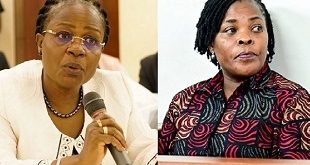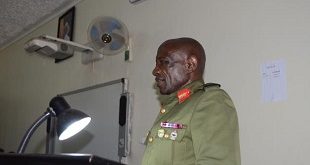
Kampala, Uganda | THE INDEPENDENT | Archbishop Paul Ssemogerere has revived the Sabasumba Annual Appeal Fund (SAAFU), originally initiated by his predecessor, Dr Cyprian Kizito Lwanga, to address the financial needs of Kampala Archdiocese.
The late Archbishop Lwanga, recognizing the reduced foreign support and aiming for a self-sustaining archdiocese, began the initiative in 2007 to assist the clergy and select projects. The first appeal was utilized to renovate Lubaga Cathedral, which was in a state of disrepair.
In the subsequent years from 2008 to 2011, the funds were directed towards the redevelopment of the old block, transforming it into a new administration block at Lubaga. This new facility now houses the majority of the archdiocesan offices.
Rev Fr Timothy Lukananso, the Director of SAAFU, acknowledged that over time, the initiative lost the appeal it had and contributions to the initiative declined as years went by. He however adds that the archbishop opted to revive it in recognition of the positive impact it had on the archdiocese.
Kampala Archdiocesan Chancellor Rev. Fr. Dr Puis Male noted that the revival of the initiative is not reinventing the wheel but rather another indication of the essential role of continuity within the Catholic Church. He added that the current ordinary aims to provide SAAFU with a rebranding and strengthen its influence among the faithful within the archdiocese.
Speaking during the relaunch of the initiative at Lubaga Cathedral, Archbishop Ssemogerere announced that the funds collected this year would primarily be allocated to support the reconstruction of Our Lady of the Equator Church in Nkozi.
The historically significant Church, originally constructed by the White Fathers, Missionaries of Africa, nearly a century ago was brought down by a rainstorm in March.
Archbishop Ssemogerere emphasized the significance of this Church for the Archdiocese, as it serves as the host for the Catholic University in Uganda. He called for collaborative efforts to restore it to its former glory, recognizing its pivotal role in the community.
The reconstruction project for Nkozi has been budgeted at 2.4 billion Shillings. However, the Archbishop has emphasized that not all the funds collected through SAAFU will be allocated to Nkozi because there are other pressing needs within the Archdiocese. Consequently, he has advised parishioners in Nkozi to explore additional fundraising initiatives to gather extra funds.
During the launch, the Archbishop expressed his aspiration to collect 4 billion Shillings through this initiative this year, even though they have never collected more than 1 billion Shillings in the past. He said that the official announcement of this year’s collections will take place on the last Sunday of October, coinciding with Archdiocesan Day.
Under SAAFU, each year, every Catholic is expected to make a minimum contribution of 2,000 Shillings, while children are encouraged to contribute 1,000 Shillings. These contributions are separate from alms and tithes.
The collection process involves distributing special envelopes through Church structures, including parishes, sub-parishes, and local communities. Additionally, special fundraisers are organized at both parish and Archdiocesan levels. These events include SAAFU Fundraising dinners, mobilization efforts, and donations from various organizations and individuals who support the cause.
Dr Lwanga set a precedent for other Dioceses when he established SAAFU in Kampala, having initially implemented a similar initiative in Luweero Diocese during his tenure as its ordinary. It served as an inspiration, prompting others to embrace similar initiatives. These programs have played a vital role in providing crucial support for a range of development projects.
For instance, the late Bishop John Baptist Kaggwa launched a similar initiative in the Masaka Diocese, where every Catholic was required to contribute. Through the collections made under this scheme, the Diocese has been able to fund and establish numerous tangible projects that benefit the community.
Canon 1266 of the Catholic Church grants the Diocesan Bishops, or the local Ordinary, the authority to decree a special collection for particular parochial, diocesan, national, or universal initiatives. It stipulates that the funds collected must then be diligently forwarded to the diocesan curia for proper administration and distribution for the specified purpose.
*****
URN
 The Independent Uganda: You get the Truth we Pay the Price
The Independent Uganda: You get the Truth we Pay the Price


